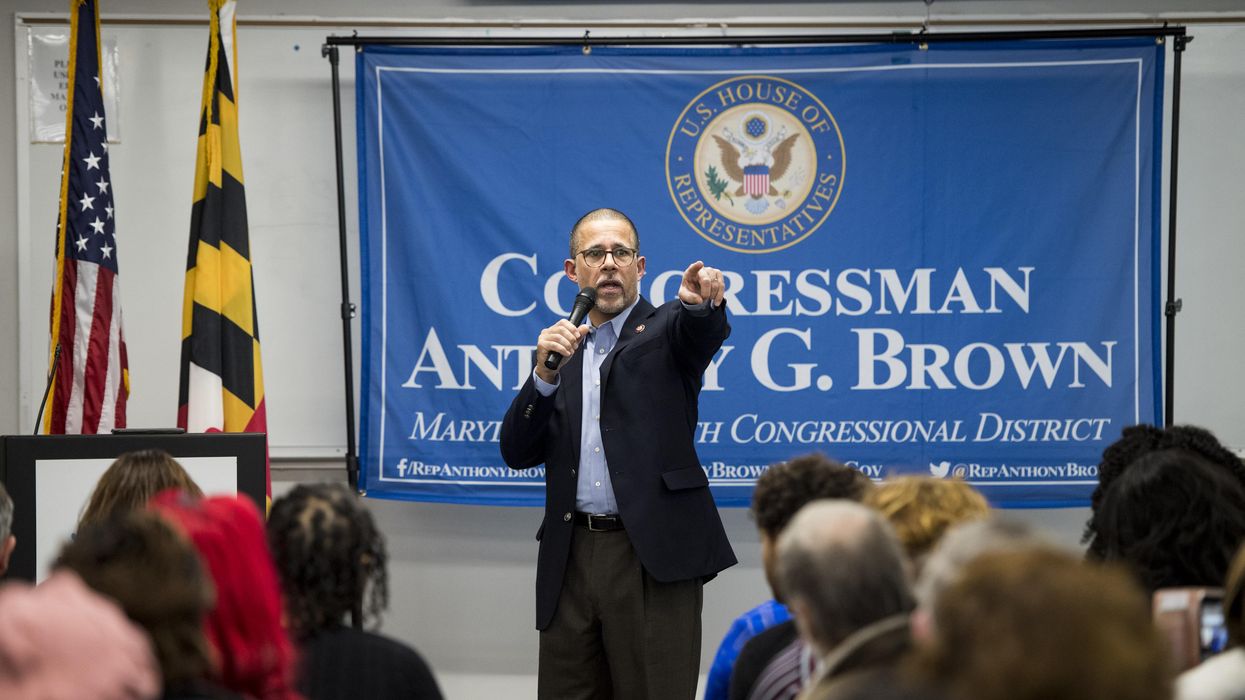Fitch is the president and CEO of the Congressional Management Foundation and a former congressional staffer.
It's no secret that this has been a tough year for Congress. The pandemic and the Jan. 6 attack on the Capitol have left a malaise over the congressional community. The public continues to hold Congress is low regard. One public opinion survey asked what words they would use to describe Congress: "incompetent," "inept," "terrible" and "bad" topped the list.
The challenge for many Americans (and even some journalists) is to see past the caricatures, show horse politicians and Hollywood narrative to get a real understanding of Congress at work. The Congressional Management Foundation aims to open such a window to Capitol Hill and highlight the best in Congress through the Democracy Awards. The program is kind of like the "Oscars for Congress" (without the red carpet and fancy outfits).
The vision and goals for the Democracy Awards are simple and based on the success CMF has seen in our 44-year history of improving Congress. First, we wanted to recognize legislators and their staffs, identifying best practices in congressional offices. It should be noted that this award actually goes to the office, including staff, not just the member of Congress. That is of course because we all know that while the member is the crucial leader of the office, he or she cannot succeed without the support of an outstanding team. Second, the Democracy Awards seeks to provide examples of best practices to other members of Congress, offering them roadmaps to improving their operations and services to constituents. Finally, we hope the Democracy Awards will increase public understanding of Congress.
We all know that Congress is not held in high regard by the American public. But those who really know the institution also know the real Congress is made up of amazing and dedicated public servants, tirelessly working for their constituents. CMF hopes that we can shine a light on those members and offices, if only for a brief moment, then perhaps we can chip away, if only a little bit, at the wall of cynicism in our nation.
And this is no easy award to win! The process for being selected as a winner is thoughtful, extensive and based on clear criteria. Offices self-nominate by providing some information on why they think they are an award-winning office. CMF staff will interview senior staff in the offices of candidates for the award and collect corroborating information and documents. The winners are selected by a committee primarily comprised of former members of Congress and staff. The results are an amazing display of outstanding public service and a roadmap to excellence for other congressional offices.
This year's winners include:
- Rep. Dusty Johnson (R-S.D.), who employed a creative way to stay connected to his constituents during the pandemic while social distancing: He held "drive thru" town hall meetings in parking lots, where constituents could shout questions from their cars.
- Rep. Katie Porter (D-Calif.), who empowers her team by giving a "Truth to Power" award every month to an outstanding staffer in the office who has shown individual initiative.
- Rep. Don Bacon (R-Neb.), who created a nonpartisan Congressional Youth Advisory Academy designed to educate students on how Congress operates and the process by which public policies are formed.
- Rep. Anthony Brown (D-Md.), who is so intent on demonstrating accountability to his constituents he often waits two to three hours after the end of a town hall meeting to wrap up, insisting on greeting and talking with every constituent attending until they leave the room.
The Democracy Awards are still nascent, only in their fourth year. But they are already generating the competitive spirit we hoped to create in Congress. At a 2020 panel briefing that included the previous year's winners, when a staffer described their innovative or award-winning practice, the other winners on the panel were feverishly taking notes!
At a time when partisan rhetoric is exacerbating the differences in the nation and Congress, it is refreshing to hear that a group of members of Congress have something in common: a passionate desire to serve their constituents and demonstrate excellence in public service. The denizens of the broader congressional community yearning to lift the August doldrums would be wise to study the successful practices of Democracy Awards winners. They might just be the tonic America needs to restore a little faith in government.




















Trump & Hegseth gave Mark Kelly a huge 2028 gift